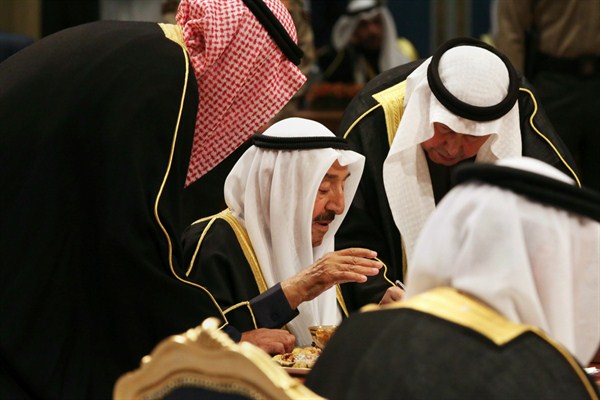Kuwait has had a strong start to its two-year term as one of the 10 rotating members of the United Nations Security Council. In February, it organized and hosted an international conference for the reconstruction of Iraq that raised a promised $30 billion in loans and investments. It has also partnered with Sweden to advance several draft resolutions for cease-fires in Syria and to coordinate the Security Council’s humanitarian work there.
Long an active player in regional diplomacy, Kuwait is well-placed to act as a bridge connecting Arab and international efforts to find mediated solutions to conflicts and flashpoints in the Middle East. Its role is driven largely by its current ruler, or emir, Sheikh Sabah al-Ahmad al-Sabah, who served as foreign minister for 40 years between 1963 and 2003 and is, at 88, the elder statesman in the Persian Gulf.
Several reasons underlie Kuwait’s commitment to regional diplomacy, although they have evolved over time. Aside from Saudi Arabia, which never fell under foreign domination, Kuwait became the first of the British-protected sheikhdoms in the Gulf to gain independence in 1961—10 years before Bahrain, Qatar and the United Arab Emirates. British forces returned to Kuwait within a week of leaving, however, after Iraq’s military ruler moved forces toward the southern border and appeared ready to invade. British troops were later replaced by an Arab League force, and Iraq dropped its territorial claim to Kuwait and recognized its independence in 1963. However, the incident provided a sobering lesson to Kuwaiti leaders of the vulnerability of small states to powerful and expansionary neighbors. Partly for this reason, Kuwait sought to balance and diversify its foreign relationships from the outset of independence, including with the Soviet Union and the Non-Aligned Movement, to avoid overreliance on any one external partnership.

